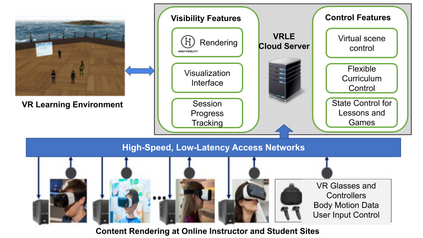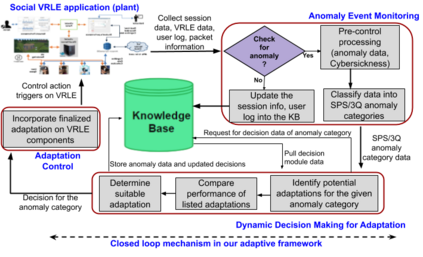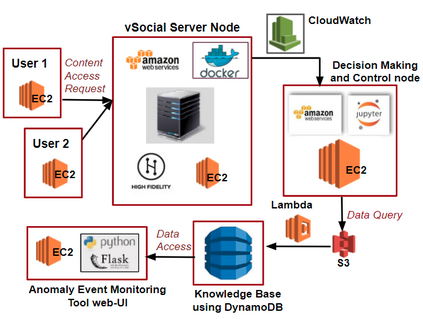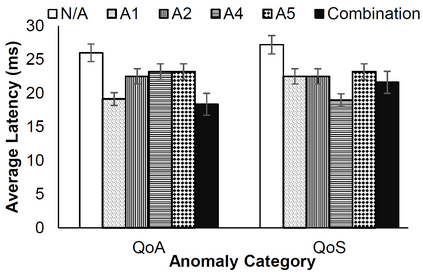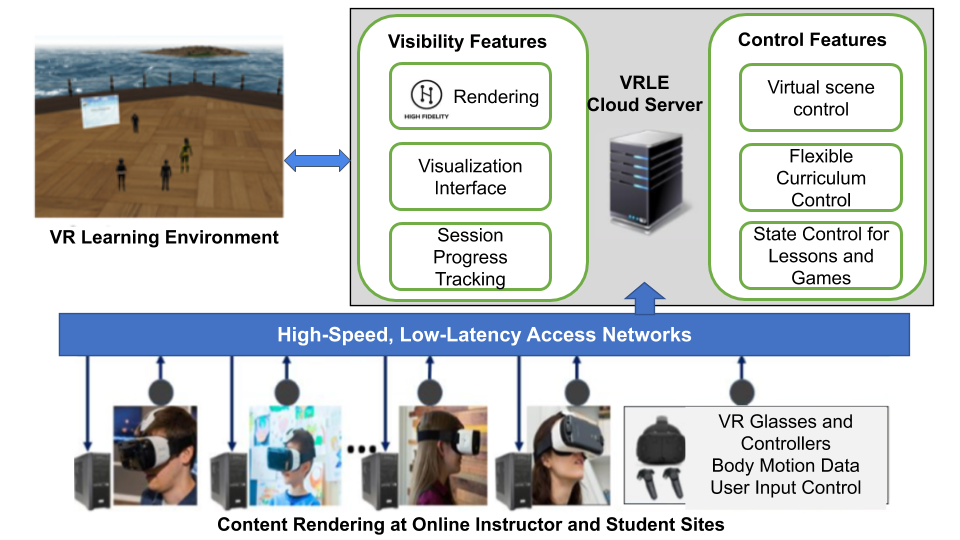Social virtual reality learning environments (VRLEs) provide immersive experience to users with increased accessibility to remote learning. Lack of maintaining high-performance and secured data delivery in critical VRLE application domains (e.g., military training, manufacturing) can disrupt application functionality and induce cybersickness. In this paper, we present a novel rule-based 3QS-adaptation framework that performs risk and cost aware trade-off analysis to control cybersickness due to performance/security anomaly events during a VRLE session. Our framework implementation in a social VRLE viz., vSocial monitors performance/security anomaly events in network/session data. In the event of an anomaly, the framework features rule-based adaptations that are triggered by using various decision metrics. Based on our experimental results, we demonstrate the effectiveness of our rule-based 3QS-adaptation framework in reducing cybersickness levels, while maintaining application functionality. Using our key findings, we enlist suitable practices for addressing performance and security issues towards a more high-performing and robust social VRLE.
翻译:社会虚拟现实学习环境(VRLE)为用户提供深入体验,使他们更容易获得远程学习;在关键的VRLE应用领域(如军事培训、制造)缺乏高性能和安全数据提供,会干扰应用功能并诱发网络病变;在本文件中,我们提出了一个基于规则的3QS适应新框架,进行风险和成本意识的权衡分析,以控制VRLE会议期间因性能/安全异常事件而造成的网络病变;我们在社会VRLE viz., v Social监测器网络/会期数据中的性能/安全异常事件中实施框架。如果出现异常情况,该框架将采用各种决定指标引发基于规则的调整。根据我们的实验结果,我们展示了我们基于规则的3QS适应框架在降低网络病变率方面的有效性,同时保持应用功能。我们利用我们的主要发现,我们利用适当的做法来解决业绩和安全问题,以建立更高效和稳健的社会VRLEE。

